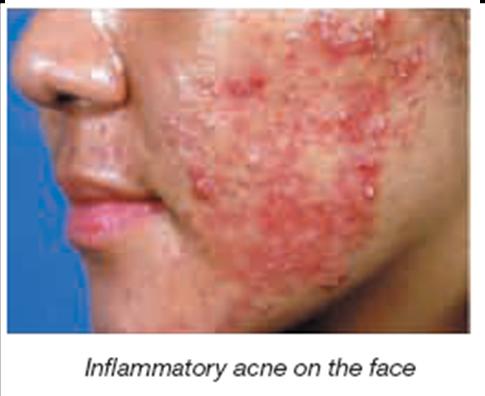Acne is a condition which develops in and around the hair follicles and their oil producing glands called the sebaceous glands. Although we have these glands all over the surface of our body, it is only on the face, chest and back that acne develops. The oil produced by sebaceous glands is called sebum and it begins to appear soon after puberty. Acne usually starts during teenage years but can also begin in the twenties or thirties.
There are several causes of acne. One theory is that when the male hormone level increases during puberty, the skin of the acne prone person reacts to the hormone to produce excess sebum. No one knows why some people’s oil glands produce more sebum than others, but when this happens, the oil glands become blocked. This leads to the formation of comedones – the blackheads and whiteheads. In some people, the acne may not progress beyond this stage, but usually it does.

Bacteria in the deeper part of the hair follicle and beneath the sebum blockage release chemicals which act upon the sebum and break it down to release other chemicals. These chemicals make the skin around the hair follicle red and inflamed, resulting in a pimple. In bad cases, pus may develop within the pimple. Large, painful swellings called nodules and cysts may develop and result in scarring after the condition has eventually settled. These scars can either be depressed and sunken, or bulging and hard.